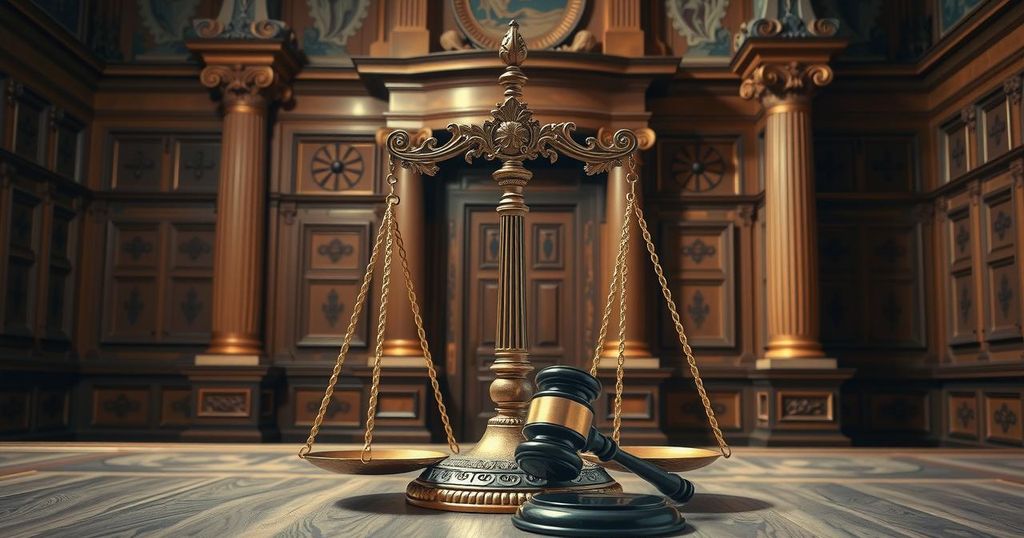Sudan has filed a case against the UAE at the International Court of Justice, alleging that UAE funding to rebels breaches the Genocide Convention. The country is seeking urgent protective measures for the Masalit community amid a conflict that has resulted in over 24,000 deaths and millions displaced. The UAE is accused of arming rebel forces, which it denies, while the international community reflects on the historical context of violence in Sudan.
Sudan has filed a case against the United Arab Emirates (UAE) at the International Court of Justice, alleging a violation of the Genocide Convention due to the UAE’s financial support of rebel forces. Sudan also seeks immediate provisional measures to protect the Masalit community from ongoing violence and crimes.
Since mid-April 2023, Sudan has been embroiled in a violent conflict precipitated by disputes between military and paramilitary factions, resulting in over 24,000 fatalities and displacing roughly 14 million individuals, approximately 30% of the country’s populace, according to United Nations reports. Furthermore, around 3.2 million Sudanese have fled to neighboring countries.
This legal action follows the signing of a charter by the Rapid Support Forces (RSF) and their allies, intent on forming an alternative government amid recent military gains by Sudan’s armed forces. The Conflict Observatory, which is economically supported by the U.S. State Department, has reported that aircraft transporting UAE arms to the RSF have flown from Chad, although the UAE claims these flights were for humanitarian purposes.
In January, the U.S. Treasury Department imposed sanctions on RSF leader Mohammed Hamdan Daglo Mousa, known as Hemedti, and seven associated companies in the UAE for their involvement in alleged genocide, further complicating the situation. Despite repeated accusations of arming the RSF, the UAE has consistently denied such claims.
The legacy of violence in Sudan extends back two decades, with the Darfur region historically associated with severe human rights abuses and atrocities led by Arab militias against African-identifying populations, leading to hundreds of thousands of deaths and displacements. Decisions made by the International Court of Justice are legally binding but often take years to be finalized, leaving a significant delay in obtaining justice.
Sudan’s case against the UAE at the International Court of Justice highlights serious allegations of genocide and external interference in its ongoing conflict. The rising human toll and extensive displacement due to this conflict bring to the forefront the urgent need for international legal intervention and accountability. With a history of violence in the region, the call for protective measures is critical as Sudan navigates through a turbulent chapter in its history.
Original Source: battlefordsnow.com




